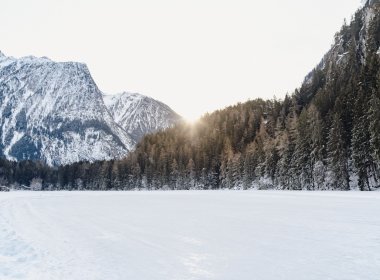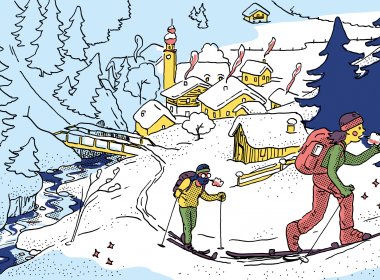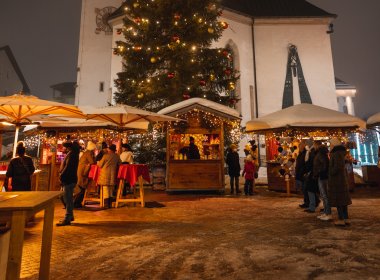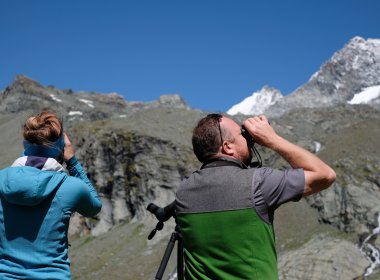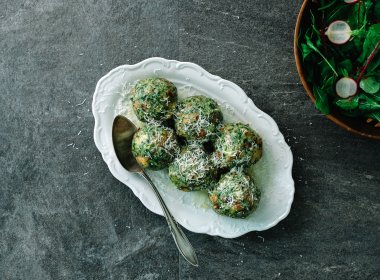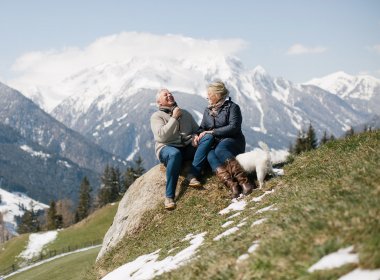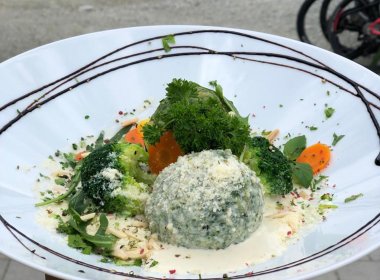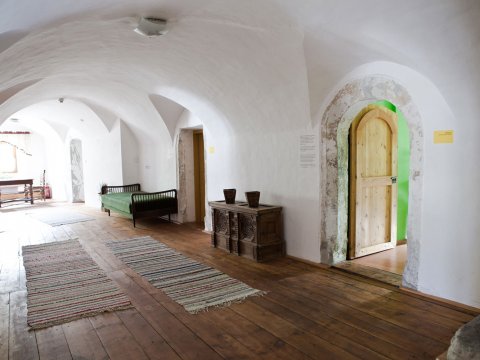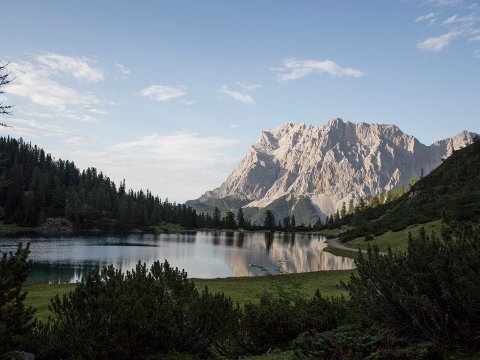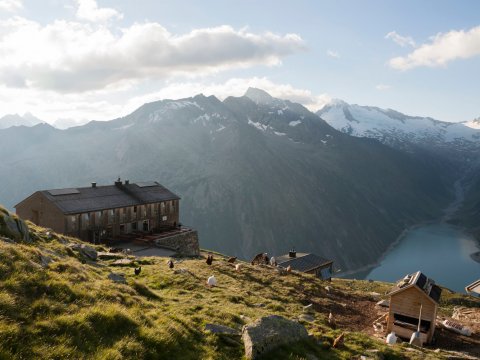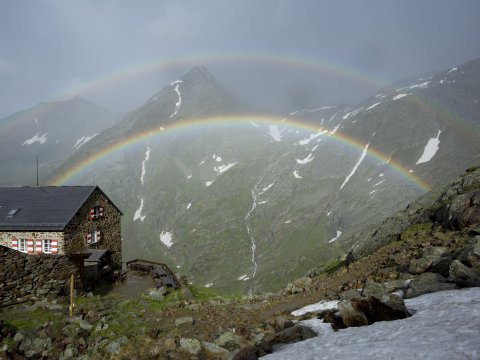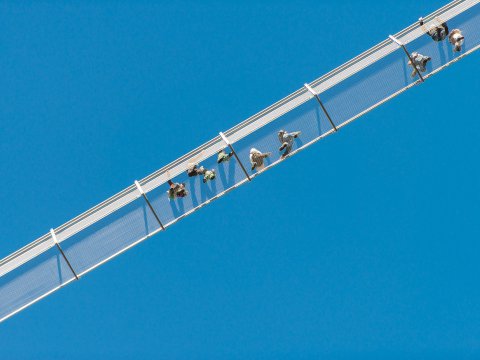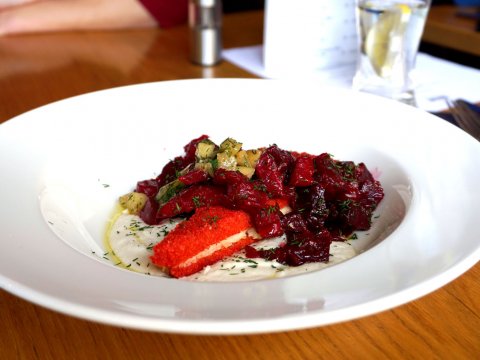Getting Your Hands Dirty: Farmyard Holidays
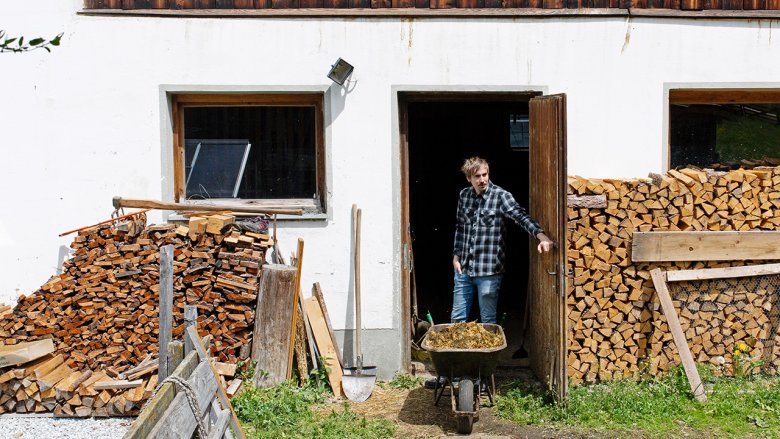
For city slickers, the Siedlerhof farm is characterised first and foremost by one thing: the sound of silence. However, Christine Erharter doesn’t agree. If you listen closely, she says sitting on a wooden bench outside the front door, the sun in her face, then you can hear lots going on: bees buzzing from one plant to the next, hard at work pollinating the spring flowers, and the sound of grasshoppers as they warm up for a summer of cheery chirping.
The thing that surprises most people is just how quiet it is here.
Perched high in the mountains, above the lush valley floor, the Siedlerhof in Hopfgarten seems a million miles away from the trappings of civilisation: no neighbours, no traffic – just the pulsating sounds of nature. „The thing that surprises most people is just how quiet it is here,“ explains Christine.

The never-ending views, the sunny location, the beautiful traditional wooden farmhouse built in the style typical of the region – there are plenty of good reasons why people come to the Siedlerhof for their holidays. The number one motivation, as strange as it may sound, is probably that the Siedlerhof isn’t really a holiday destination at all – it’s a working farm. The Erharter family own 24 cows plus a Haflinger horse, a pony, rabbits, chickens and cats. Just feeding all the animas seems to take up most of the day. Working on a farm may seem an unusual way to spend your hard-earned holiday, but more and more people are taking up the opportunity to get back to nature and enjoy a break from urban living.
Farmyard holidays – a long tradition becoming ever more popular
All in all there are 318 farms in Tirol which belong to the Austrian association of farmyard holiday providers. One of them is the Siedlerhof. The association, which was founded almost 30 years ago, supports farms throughout the country which wish to give holidaymakers the opportunity to find out what life is like on a real Tirolean farm. The standards are strict. For example, all the participating businesses must be working farms with at least two hectares of land in use. There is also a maximum number of visitors who can stay at any one time. The association reports that the number of people taking up the opportunity has been on the rise in recent years – farmyard holidays in Tirol are „in“.
The first thing people ask for is no longer the WLAN password.
„Going into the shed and stroking a calf – for many people that is a real adventure,“ says Christine. She knows what her guests want and need. Some have been coming back to the Siedlerhof for decades. Many are families with children. While youngsters spend the day collcting eggs for breakfast, helping take the horses out of the stables and feeding the rabbits, their parents can get stuck in with a few hands-on jobs of their own. For children in particular, this experience teaches them much about respect for nature, for example how important it is to be careful and considerate when dealing with cows and their young. Pony Stella needs a little more time than the others because she has asthma, while the beautiful chestnut brown Haflinger horse Cindy is as relaxed as they come and more than happy to be petted. „Children are quick to read the body language of the animals,“ explains Christine. Parents, meanwhile, can help our harvesting the hay or take a few hours off to go for a walk in the mountains.
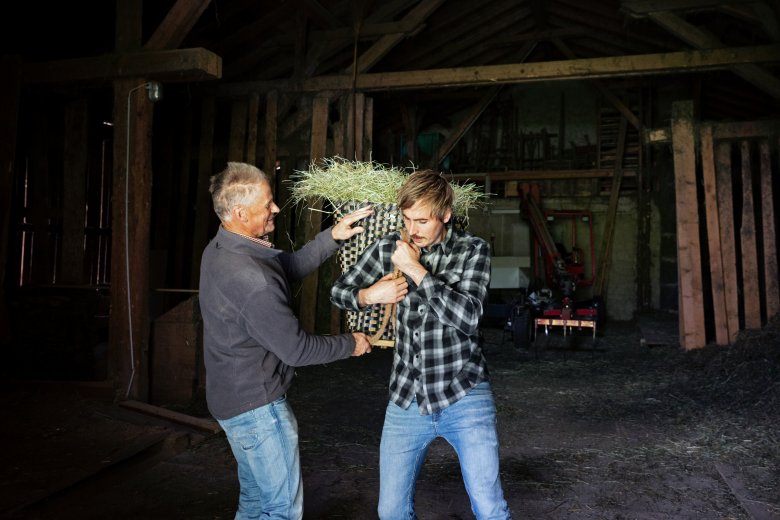
A centuries-old farmhouse with a rich and proud history
It is by no means only families with children that come to the Siedlerhof. „We have more and more young people staying with us,“ says Christine. „Expectations have changed. In the past, guests wanted to do as much as possible, including days out in Innsbruck or visiting the Krimmler Waterfalls. These days they simply want to relax, get away from it all, rediscover nature and reconnect with farming.“ The evidence? As Christine explains: „The first thing people ask for is no longer the WLAN password.“
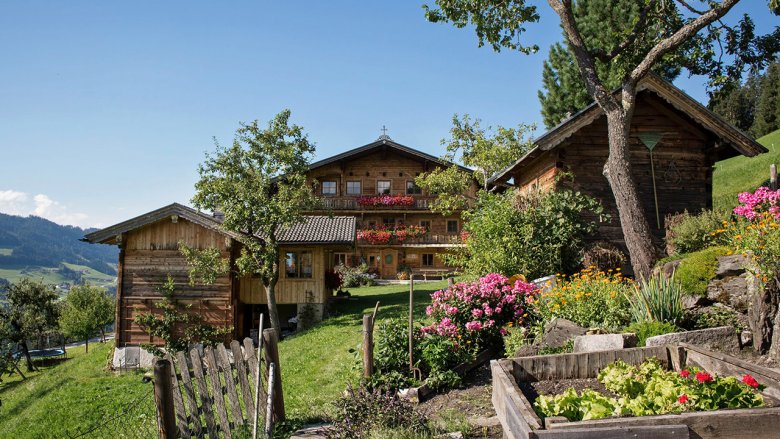
Gerti Maas from the Tiefhof farm in Nauders has noticed the same thing. „I think people are increasingly willing to go without luxuries. Or, to be more precise, they are keen to experience a different kind of luxury.“ The two holiday apartments she has on her farm are simple but contain everything you need for a comfortable and enjoyable stay. Neither has a television. „We notice that our guests don’t want to be busy all day, from early in the morning until late at night. Instead, they come here to relax,“ she explains. The Tiefhof is perched at 1,570 metres above sea level above the village of Nauders. It is here that the mountain road ends. From there onwards it’s just moorland, streams, lakes and forests. The farm is located in the „Dreiländereck“, an area in the west of Tirol where three countries converge: Austria, Italy and Switzerland. Just a small walk is enough to cross over into all three territories. Three countries in one afternoon stroll – not bad going.

The Tiefhof is home to cows, horses, goats, two pigs and several chickens. The Maas family, which runs the farm, places great emphasis on sustainable agricultural practices. In practical terms, the number and type of animals they have is dictated by the feed which they are able to naturally produce on the farm. „Otherwise you have to buy in feed from elsewhere, then you end up with too much slurry for the fields – that’s not the way we do things,“ explains Gerti. Animals are slaughtered on site in order to spare them unnecessary stress. The meat is sold in the farm shop and to nearby restaurants.

She enjoys talking to people who would normally not be part of her world.
Gerti enjoys passing on her philosophy to her guests and showing them what sustainable farming really looks like. The family often sits down with visitors and tells them about the long and turbulent history of the farm, featuring smugglers in the forests and the hardship of life in the mountains which meant only one of the six children got a Christmas present. „The kids love to listen to our tales – and I love telling them,“ says Gerti. She enjoys talking to people who would normally not be part of her world, knowing that their time at the Tiefhof will leave them with memories for years to come. Of the visitors who stay on the farm, 80% are regulars.

Hany Plattner-Dvorak knows as well as anyone that farmyard holidays are about more than just relaxing. She is in charge of the Thumeserhof farm in the Schmirntal Valley, around ten kilometres as the crow flies from the motorway connecting Austria and Italy via the Brenner pass. In reality, however, the two are worlds apart. Since last year, Hany has been a member of the project „Aktiv am Bauernhof“.
Aktiv am Bauernhof, Wipptal Valley
Dates
- Date 1: 24 June – 27 June 2021
- Date 2: 01 July – 04 July 2021
- Date 3: 02 September – 05 September 2021
- Date 4: 09 September – 12 September 2021
Interested? Here you will find details on what it’s all about and how to get involved.
In just four days, visitors learn how to make traditional Tirolean dishes such as „Kiachln“, visit the typical „Grauvieh“ cows high in the mountains and learn the basics of working the land in the Alps. Hany also has a passion for natural herbs. „I enjoy telling people about the herbs which grow here in the region and all the things you can do with them, from liqueurs and tea infusions to soothing creams and special salts. Primrose, for example, can be used to make a sirup to help with coughs.“
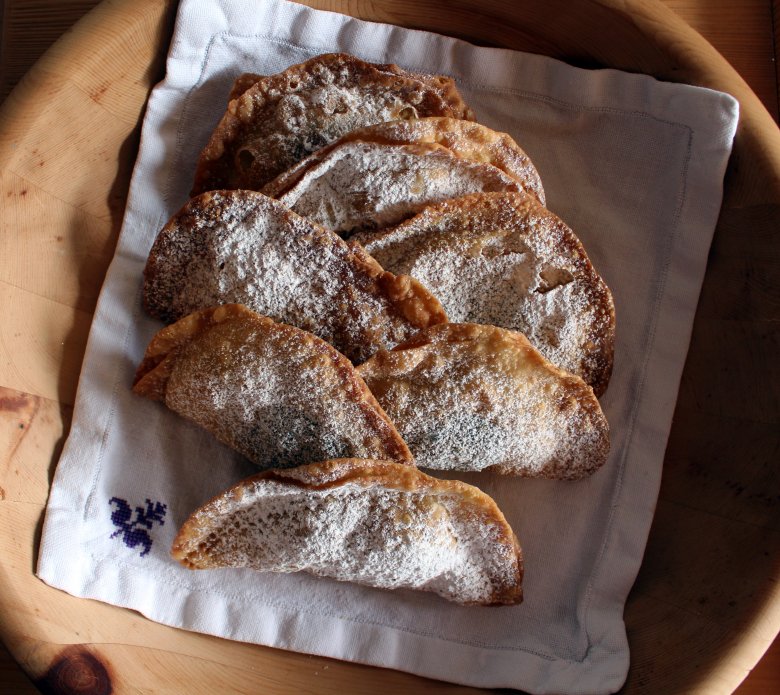
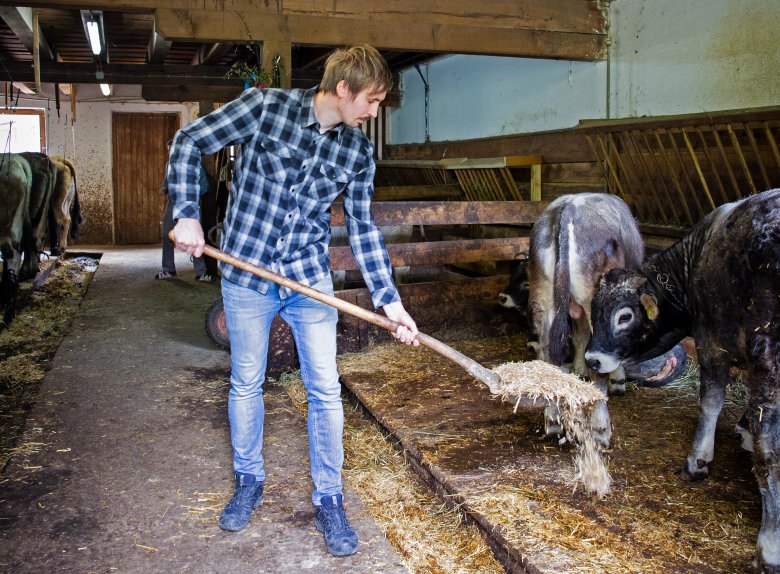
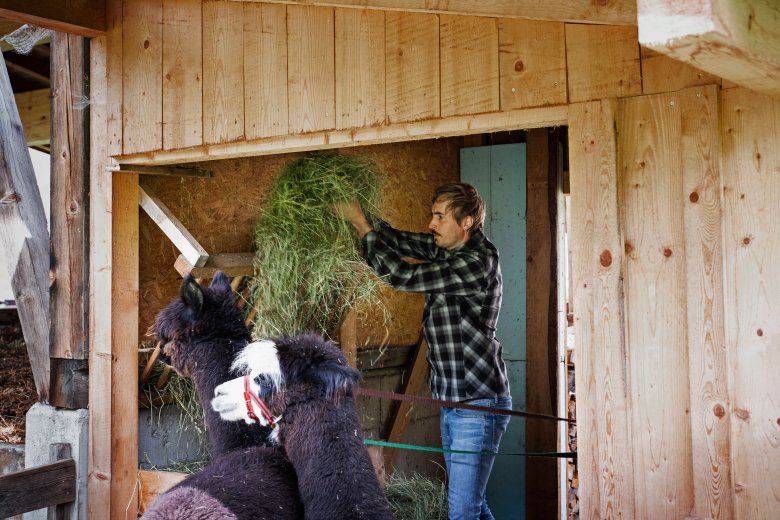
An oasis of peace and quiet
The Schmirntal Valley is an excellent place for walkers, hikers and climbers in search of a little peace and quiet. It is sparsely populated and has just a few houses and farmstead dotted across the meadows, surrounded by mighty mountains. Farming has shaped the landscape here for hundreds of years. Even today, it is still possible to experiece what life is like on a real working farm. Here, everything seems to happen a little more slowly. You won’t be surprised to learn that the only supermarket in the valley takes a three-hour lunch break.
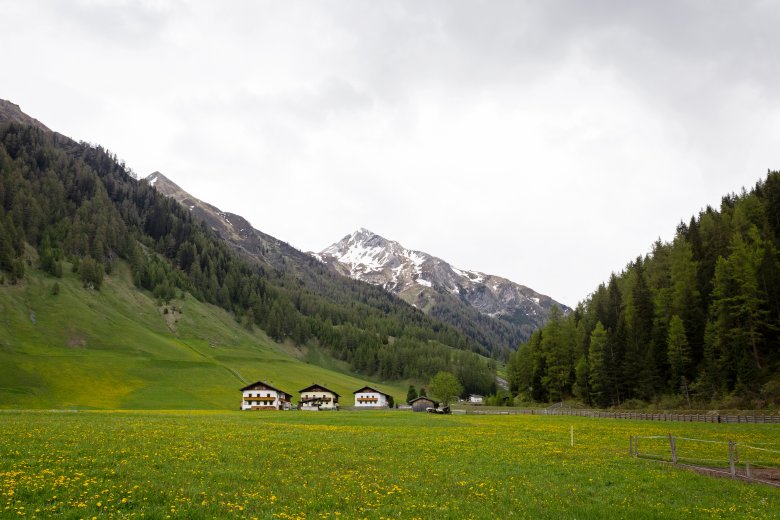
Visitors to the Thumeserhof between late June and early July can – depending on your point of view – get lucky or unlucky. It is at this time of year that the hay must be harvested, a task still performed by hand on the steep slopes. Even the farmers admit that it is a lot of work which needs to be done in a short amount of time. „We rope in anyone and everyone we can to help,“ says Hany with a smile. „It’s hard work, but the feeling of community is fantastic.“ At the end of a long day toiling in the sun, visitors can be rightly proud of what they have achieved. And who knows, maybe Hany has a soothing tincture to apply to those aching muscles…










